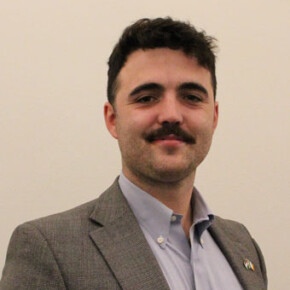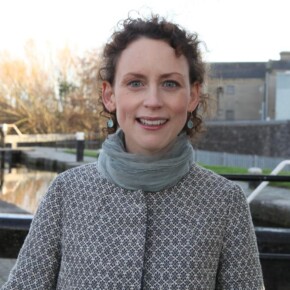Dublin’s special education crisis: The Minister’s update
Dublin People 16 Apr 2025
With just five months to go before the new school year begins, doubts remain over the Government’s ability to fulfil its promise of opening 400 new special education classes across the country.

Education Minister Helen McEntee has told Cabinet she is prepared to invoke emergency powers to compel schools to open additional special classes if the target is not met voluntarily.
While 375 of the promised 400 classes have already been sanctioned, the Minister has said she will use her powers of compellability if the gap isn’t closed in the coming weeks.
It’s the latest twist in a crisis that has left thousands of families in limbo, uncertain whether their children with additional needs will have a place in school come September.
Last week, Sinn Féin TD for Kildare, Shónagh Ní Raghallaigh, pressed the Government in the Dáil for clarity.
She called on the Minister to confirm how many new special classes and schools had been sanctioned for September 2025, whether they would be fully resourced, and if every child would be guaranteed a place.

In response, Minister of State at the Department of Education, Michael Moynihan (pictured above), said that more than 375 special classes had been approved to date, and the figure “could be” as high as 390.
However, that still leaves the Government short of its stated target.
He also said the Department is currently working with the National Council for Special Education (NCSE), school patron bodies and other stakeholders to identify further classes.
But questions remain about whether these efforts will be enough—and on time.
“This Government is fully committed to supporting children with special educational needs to fulfil their full potential,” Moynihan said.
“Up to an additional 2,700 specialist places, made up of 400 new special classes and 300 special school places, will be provided for the 2025–2026 school year.”
However, he acknowledged the scale of the challenge, noting that five new special schools are being planned, with efforts also underway to increase capacity in existing ones, particularly in Cork and Dublin—two areas where the demand has repeatedly outstripped supply.
Even with new places being created, the system still relies heavily on “natural churn” as students graduate and move on.
More than 1,200 of the expected school places next year are projected to come from this regular movement. And while some special classes currently have vacancies, this does little to help families in areas where no places are available.
Moynihan highlighted new measures outlined in Circular 0080/2024, which aim to improve the forward planning of special education provision. These include a push to gather earlier information on the number of children who will require placements.
This year, parents of children with additional needs were asked to notify the NCSE by February 1.
That deadline was extended to mid-February due to poor weather, but the response was substantial.
The NCSE received 3,275 verified notifications of children seeking specialist placements for the next academic year.
While the Department insists that there will be close to 4,000 places available through a combination of new classes, existing vacancies and new school openings, critics say the numbers on paper are not translating into real-world solutions for families.
Within the Department, officials insist that major efforts are underway to improve the system.
Minister Moynihan said the Department is months ahead of where it was this time last year in preparing for September.
“We are working extremely hard with the NCSE and the Department of Education officials to ensure all of the 400 special classes are opened by September,” he said. “I believe the NCSE has created sufficient capacity for children who need special classes.”
He also said that future deadlines for notifying the NCSE of placement needs would be moved earlier in the school year to provide more certainty to families.
On the role of Special Needs Assistants, Minister Moynihan stressed that there had been no change in policy and that more SNAs had been hired and were budgeted for the coming school year.
“I take this opportunity of acknowledging the enormous work the SNAs do in the entire school communities,” he said. “The work they do in special education, the dedication they put into it and the connection they have with the children and families is second to none.”

Social Democrats TD Jen Cummins (pictured above), who represents Dublin South Central and serves as the party’s education spokesperson, welcomed the announcement of additional special education classes, but warned that the government must match ambition with action by properly resourcing staff training and supporting families on the ground.
“The news of 375 new special education classes looks positive on paper,” she said.
“However, too many families across Ireland and in Dublin South Central know that these numbers often don’t translate into real places.”
Deputy Cummins said she has spoken to parents who are still waiting to hear whether their child will have a school place next year.
For many, she said, the uncertainty is not just stressful—it’s devastating.
“The government has been far too slow in scaling up college training places for vital therapies such as speech and language, occupational therapy, and psychological services,” she said.
“These supports are just as essential as the classes themselves.”
She also warned that expanding special education without addressing the staffing crisis will only increase pressure on an already overstretched system.
“We cannot talk about inclusion without talking about staffing,” she said. “These classes must be fully resourced – that means SNAs, therapists, and properly trained teachers.”
Although the Government has made some progress in increasing training places for therapy disciplines, Deputy Cummins said the changes are coming too late for many families currently battling for support.
In her view, the Minister’s recent comments on supporting parents need to be backed up by action.
“Parents are exhausted from having to advocate constantly for their children’s rights. What they need is a system that works – one that is timely, fully staffed, and responsive to their needs.”
But while the rhetoric from government ministers remains positive, families across Ireland continue to face a very different reality.
With the start of the new school year just around the corner, thousands of parents are still waiting for confirmation, still trying to navigate a system that often feels impenetrable, and still hoping that the promises made will finally be kept.
As our campaign has shown again and again, it is not enough to talk about inclusion. It must be delivered—in every school, in every county, and for every child who needs it.













